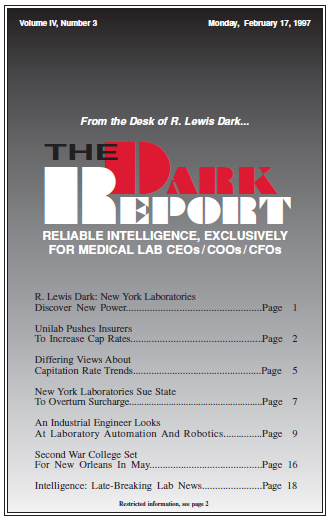CEO SUMMARY: California’s financially destructive capitation rates plunged two more laboratories into bankruptcy. Unilab’s actions indicate that even the largest laboratory company in the state can no longer survive without reimbursement relief. The question remains as to whether managed care plans will agree to pay more for laboratory testing. INDICATIONS ARE THAT CAPITATED RATES for …
Unilab Pushes Insurers To Increase Cap Rates Read More »
To access this post, you must purchase The Dark Report.


